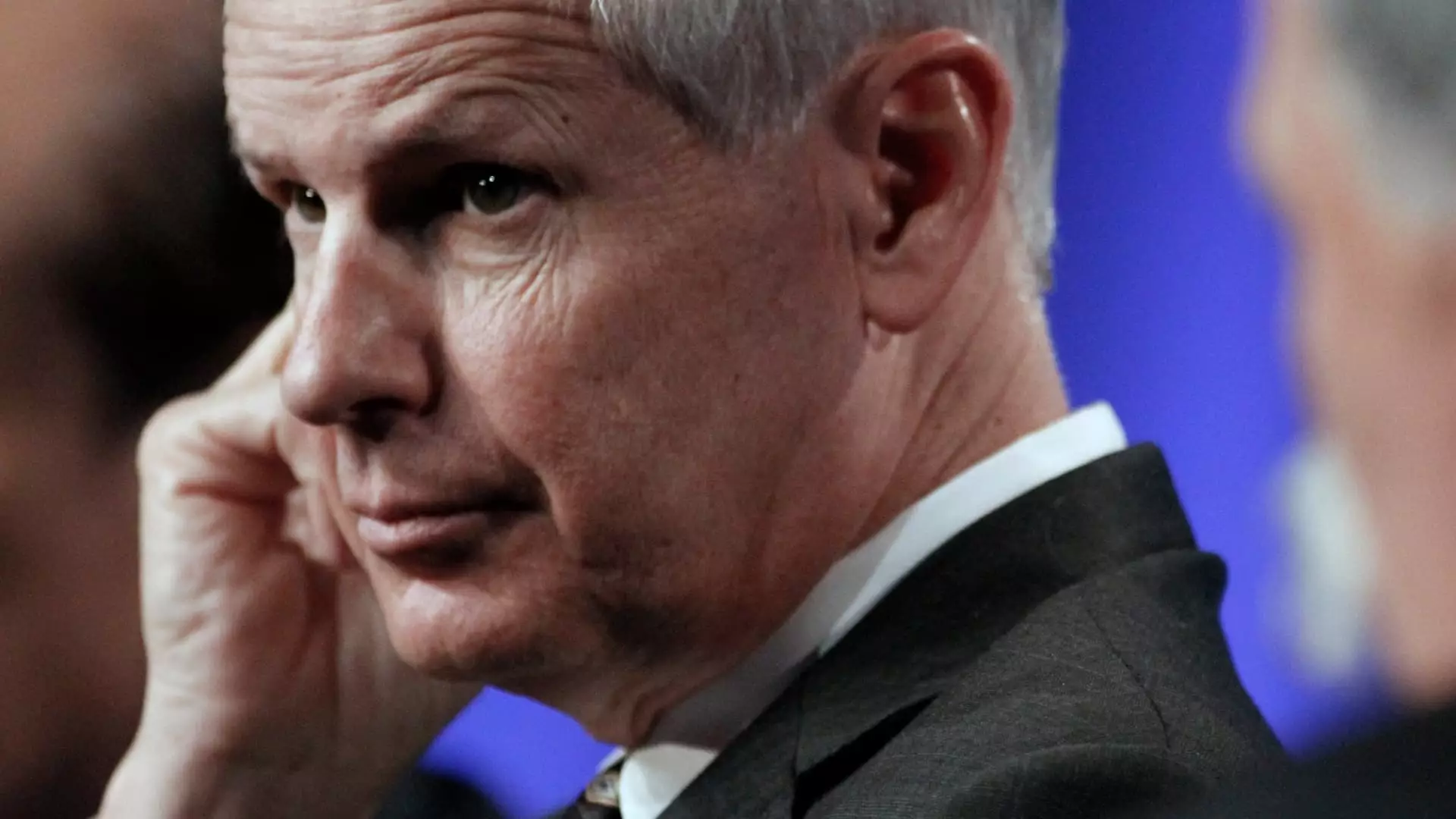The pay-TV landscape is undergoing significant changes as industry giants grapple with a shifting market landscape. One of the most significant developments has been the advanced talks between EchoStar and DirecTV regarding the potential sale of Dish Network, a company that Charlie Ergen founded over four decades ago. As competition intensifies and consumer preferences evolve towards streaming platforms, the future of traditional satellite television hangs in the balance.
According to various insiders, EchoStar is in the late stages of negotiations to sell its satellite TV arm, Dish Network, to its primary competitor, DirecTV. This potential merger is crucial for EchoStar, especially with an impending debt repayment of $1.98 billion due in November. Currently, EchoStar is struggling financially, boasting only $521 million in cash and equivalents by the end of June, with projections indicating a challenging cash flow scenario throughout 2024. The talks find themselves entangled in complexities due to these financial strains, as the risk of bankruptcy looms large.
In previous years, the Dish and DirecTV merger has been a recurrent topic within industry circles. The most notable attempt came in 2002 but was thwarted by regulatory hurdles. Yet, current developments suggest that this might be the last opportunity for EchoStar to salvage its business and bolster DirecTV’s market presence in an increasingly competitive arena.
The financial reality for EchoStar is sobering. Analysts believe bankruptcy could be a likely outcome within the next few months unless the company successfully restructures its debts or finds new capital. While EchoStar has ventured into accumulating wireless spectrum in hopes of transitioning to a wireless service provider, such assets have not proven beneficial amid the current negotiations. Rather, the proposed acquisition structure implies an all-cash deal potentially exceeding $9 billion, which indicates DirecTV’s commitment to absorbing the burdens of EchoStar’s satellite and digital operations.
The turbulent state of satellite TV subscriber counts adds an additional layer of complexity. Both Dish and DirecTV have seen significant declines in their subscriber bases, with Dish reporting approximately 6.1 million satellite subscribers and 2 million for its Sling TV service. DirecTV’s situation mirrors this decline, dropping from 15.4 million subscribers at the time of AT&T’s acquisition in 2015 to around 11 million currently. This erosion underscores the heavy competition posed by streaming platforms like Netflix, Disney+, and Amazon Prime Video, which have transformed viewer habits towards on-demand content.
As discussions progress, the implications of a merger extend beyond financial metrics; they touch on broader industry trends and customer behaviors. DirecTV, having recently faced obstacles such as the distribution conflict with Disney that disrupted access to major channels, is making strides in rebranding itself as more than just a satellite TV provider. Their recent efforts to build streaming services could present opportunities for growth if they can attract customers beyond their traditional reliance on satellite dishes.
Meanwhile, the fate of Dish Network remains at a crossroads. With the company’s efforts to refinance debt having stalled and negotiations with creditors continuing, EchoStar’s leadership must weigh their options meticulously. Given the significant shift in consumer preferences toward streaming content, the merger could present a way to consolidate resources and prevent the downsizing of both companies, but it might also be seen as a last-ditch effort to remain relevant in an evolving market.
The potential sale of Dish Network to DirecTV represents a critical juncture not just for the companies involved, but for the broader pay-TV sector grappling with unprecedented challenges. As consumer preferences drift away from traditional television models towards streaming services, the strategies employed by these once-dominant players will define their futures. The outcome of the current talks will likely hinge on financial realities, consumer engagement, and the industry’s willingness to adapt. Whether this merger materializes or crumbles under pressure, it will undoubtedly influence the trajectory of pay-TV for years to come.

Leave a Reply